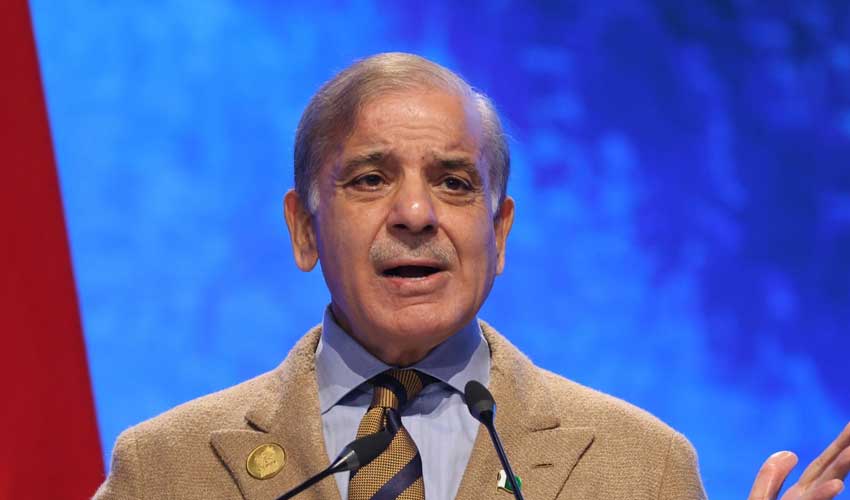Prime Minister Shehbaz Sharif on Tuesday declared that the government had introduced a Ramadan relief package for the public, excluding the involvement of Utility Stores.
He stated that inflation had reached its lowest point in nine years, dropping to 2.4 percent in January on a monthly basis. Addressing the federal cabinet meeting, Sharif expressed satisfaction over the enforcement of agricultural tax by the provinces and emphasized the determination to move towards economic growth.
PM Shehbaz said, “With the blessings of the Higher Power, inflation has declined to its lowest level in nearly a decade. Now, our utmost effort is to propel the country towards economic stability.”
The prime minister directed the Ministry of Food Security to ensure that the Ramadan package remained free from corruption and substandard goods, emphasizing that this step was taken due to persistent complaints regarding utility stores last year.
He lamented the loss of security personnel, attributing the ongoing sacrifices to past misjudgments. “Our young men are laying down their lives today, which is a consequence of historic blunders when terrorists were given leniency,” he stated. PM Shehbaz highlighted that these grievous mistakes had resulted in hundreds of martyrs and wounded personnel, whose sacrifices would always be remembered in history.
The premier acknowledged that the provinces of Sindh and Balochistan had implemented the agricultural tax a day earlier and extended gratitude to all four provinces for fulfilling the International Monetary Fund’s requirement.
Gwadar Port Development and Commercial Operations
Under PM Shehbaz’s leadership, the federal cabinet issued directives concerning Gwadar port.
PM Shehbaz instructed immediate steps for the port’s commercial operations and formed a committee under Federal Minister for Planning Ahsan Iqbal to collaborate with stakeholders to modernize and fully operationalize the port.
He directed the committee to devise an effective marketing and awareness strategy for Gwadar port and stressed the need for diplomatic initiatives to promote its utility.
An international conference was also ordered to highlight its significance. Additionally, the premier requested a comprehensive report on the imports and exports facilitated through the port.
Ahsan Iqbal, during the briefing, outlined the strategic benefits of Gwadar port, stating that it offers a cost-effective and time-saving maritime route to the Persian Gulf for vessels up to 50,000 deadweight tonnage. He also emphasized that the port has the potential to serve as a trans-shipment hub for Gulf nations and will play a pivotal role in advancing Balochistan’s mining and aquaculture sectors.
Moreover, Gwadar port will facilitate trade for China’s western regions and Central Asian republics. Officials mentioned that Gwadar Free Zone has been exempted from all federal, provincial, and local taxes, with the regulatory framework already established.
The briefing also revealed that criminal negligence had plagued the port’s dredging operations from 2018 to 2022. However, in 2022-23, the task had been successfully completed. Authorities reported that all necessary utilities had been provided at the port, alongside the implementation of various public welfare projects.
The government is working to integrate Gwadar into Pakistan Railways’ Main Line M-4 network. Officials noted that the Gwadar-Quetta highway had been completed in 2018, benefiting areas such as Turbat, Hoshab, and Panjgur. Additionally, the M-8 motorway project, connecting Gwadar, Hoshab, and Ratodero, is progressing, with additional road networks under construction, including the Nokundi-Mashkhel and Mashkhel-Panjgur routes.
Officials shared that the Gwadar East Bay Expressway is nearing completion, and collaboration with the Balochistan government continues on the Gwadar Safe City initiative.



